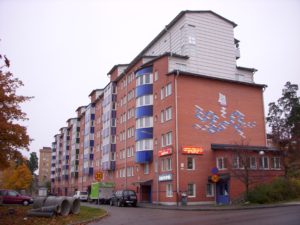
What counts as a decent home?
Back in 2000, the government at the time laid out their plans for social housing, stating that they intended to “ensure that all social housing meets set standards of decency by 2010.” The project to upgrade homes to the required standard was to be implemented in stages with funding priority going to homes in the “most deprived local authority areas.”
All local authorities were required to draw up a timetable under which they would assess, modify and, where necessary, replace their social housing so that they met the standards required. In 2006 when the Housing Act 2004 came into effect this then came to include the implementation of the Housing Health and Safety Rating System (HHSRS).
The Decent Home Standard
The Decent Homes Standard, which applies to all social housing within the UK, be it local authority or housing association, means homes must meet minimum government standards.
To meet the Decent Home Standard a home must:
- Must meet the HHSRS minimum safety standards for housing
- Be in a reasonable state of repair
- Have reasonable modern facilities and services
- Have an efficient heating system and effective insulation
A home must meet all of these criteria to be classed as a Decent Home.
How homes can fail to meet the Decent Homes Standard
“Reasonable” is a word open to interpretation, which is not ideal within a law that promises a minimum standard for homes, but essentially practical reasons why a property would be in need of upgrading to Decent Home standard could be the following:-
- Structural issues including leaking roof or rotten windows
- Persistent damp
- An elderly heating system
- An electrical system that is in poor condition
- A bathroom has not been improved in the last 20 years
- Inadequate space or layout in a kitchen
- Poor insulation that doesn’t meet minimum standards

What your social housing landlord should do to meet the Decent Home standard
A landlord is responsible for most repairs to a property and tenants can ask their landlord to do repairs that are needed in order to meet the Decent Homes standard.
Most local authorities have an ongoing program of routine upgrades to ensure that the houses in their area meet the Decent Homes Standard however these tend to be staged for efficiency and cost reasons – for example a council may have arranged for all kitchens in a given area to be replaced one year whilst the next year they will be installing new, more efficient windows.
The local authority, as a matter of course, monitors the repair of their properties, and takes into account information and complaints from tenants, their own maintenance records, and reports from Resident’s Associations when assessing where to allocate their resources.
Reasons why a landlord may refuse to make improvements
Due to their commitment to a staged program of upgrades a council may sometimes refuse certain improvements.
Following an assessment a social housing landlord could either decide that a home does not require any work or that although it could be improved it already meets the minimum standards for a Decent Home. It could also be forced to decline improvements in the short term because other properties are in greater need of improvement and will be allocated the resources as a priority.
If tenants disagree with a landlords decision to refuse improvements they can submit a complaint either through the complaints policy of the Local Authority or Housing Association or seek advice from a housing charity like Shelter (http://england.shelter.org.uk/get_advice), Crisis (http://www.crisis.org.uk/pages/get-help.html) or Citizens Advice (https://www.citizensadvice.org.uk/housing/).
Repair work consultation and disruption during repairs
A good and invested building contractor will always work in conjunction with the tenant and the landlord, listening as much to the tenants needs as to the plans and priorities of the local authority.
Tenants have a reasonable expectation that repair works should be carried out in a timely manner and with a minimum of disruption and that the work is of a high standard.
Tenants should contact the council or housing association landlord if there are problems with the standard of work done to bring a home up to the Decent Home Standard or if the work undertaken causes them extreme disruption.

Leave a comment